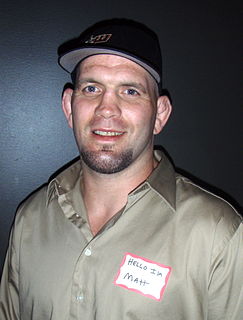A Quote by Neill Blomkamp
I think that, if there are topics that are just on people's minds, things manifest into reality out of the sort of global consciousness of being aware of those topics.
Related Quotes
It's amazing to me: when people start their career, you write about maybe a couple of topics, and you find that as you grow older, a lot of those topics never resolve, because I think your job as a writer is to pose questions as you see them. I don't know if we're supposed to give answers to people, because I don't know if we have any.
Structure is what makes communication hang together. It's like the rails that a train runs on. Without them, things wouldn't move very far. If you only have time to do one thing in your presentation, make sure it has a clear and identifiable structure. Without this, you'll have no credibility. Once you've organized your ideas, if you step back and look at it, many times we've organized topics. We've strung together a structure with organized topics. At this point, change your topics into messages.
A wonderful area for speculative academic work is the unknowable. These days religious subjects are in disfavor, but there are still plenty of good topics. The nature of consciousness, the workings of the brain, the origin of aggression, the origin of language, the origin of life on earth, SETI and life on other worlds...this is all great stuff. Wonderful stuff. You can argue it interminably. But it can't be contradicted, because nobody knows the answer to any of these topics.
And be silent for the most part, or else make only the most necessary remarks, and express these in few words. But rarely, and when occasion requires you to talk, talk, indeed, but about no ordinary topics. Do not talk about gladiators, or horseraces, or athletes, or things to eat or drink - topics that arise on all occasions; but above all, do not talk about people, either blaming, or praising, or comparing them.
Now consciousness, what is consciousness? Consciousness is being aware of one's surroundings, recognizing the existence, truth or fact of something; being aware of the very moment, the very instant that you are in; being aware of how you affect the human social, political, and natural ecology you are a part of and how it affects you. Consciousness is being informed and instructed through your groups peculiar culture on the effects of the varied ecologies on your immediate and distant ancestors, and to be aware of their interpretation of that experience.






































